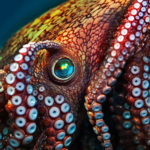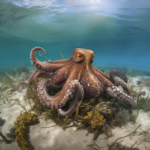Octopuses and dolphins are two highly intelligent creatures that have fascinated scientists and researchers for years. Both species exhibit remarkable cognitive abilities and have been known to solve complex problems. However, when it comes to comparing the intelligence of octopuses and dolphins, there is no clear-cut answer. While dolphins are known for their social behavior and communication skills, octopuses are renowned for their problem-solving abilities and adaptability. In this article, we will explore the fascinating world of these two incredible creatures and delve into the question: are octopuses smarter than dolphins?
Key Takeaways
- Octopuses and dolphins are both highly intelligent creatures, but their intelligence is difficult to compare directly.
- Octopuses have remarkable problem-solving abilities and can adapt to new situations quickly.
- Dolphins are known for their complex social behaviors and communication skills.
- Both species exhibit unique cognitive abilities and have evolved to thrive in their respective environments.
Understanding Animal Intelligence
A. Defining Intelligence in Marine Life
When it comes to understanding animal intelligence, marine life presents a fascinating realm to explore. From the intricate problem-solving abilities of octopuses to the cognitive prowess of dolphins, the underwater world is teeming with creatures that exhibit remarkable intelligence. But how do we define intelligence in these marine animals?
Intelligence can be broadly defined as the ability to acquire and apply knowledge, solve problems, adapt to new situations, and communicate effectively. However, measuring intelligence in animals is a complex task. It requires careful consideration of various factors such as brain capacity, learning capabilities, problem-solving skills, communication abilities, and behavioral patterns.
In the case of marine animals like octopuses and dolphins, their intelligence is often evaluated based on their cognitive abilities and behavioral responses. Researchers conduct studies to assess their learning capabilities, problem-solving strategies, memory retention, and social interactions. By observing and analyzing these aspects, scientists gain insights into the intelligence of these fascinating creatures.
B. The Complexity of Comparing Intelligence Across Species
Comparing intelligence across different species is a challenging endeavor. Each animal has evolved unique cognitive abilities that are suited to their specific environment and survival needs. Octopuses and dolphins, for instance, have distinct evolutionary paths that have shaped their intelligence in different ways.
Octopuses, part of the cephalopod family, are known for their exceptional problem-solving abilities. They have a highly developed nervous system and a remarkable capacity for learning. Octopuses can navigate mazes, unscrew jars to access food, and even use tools to their advantage. Their ability to camouflage themselves and escape from predators showcases their incredible adaptability and intelligence.
On the other hand, dolphins, with their large brains and complex social structures, exhibit a different kind of intelligence. They are highly social animals that rely on intricate communication skills, including echolocation, to navigate their underwater world. Dolphins are known for their memory capabilities, as they can recognize individual dolphins and remember complex sequences of behaviors. They also display cooperative hunting strategies, further highlighting their cognitive abilities.
While both octopuses and dolphins demonstrate remarkable intelligence, it is challenging to rank them definitively. Their intelligence has evolved differently due to their distinct evolutionary paths and ecological niches. Comparing their intelligence solely based on a few cognitive abilities would oversimplify the complexity of their overall intelligence.
In conclusion, understanding animal intelligence, especially in marine life, is a captivating field of study. Octopuses and dolphins are just two examples of the remarkable cognitive abilities found in the underwater world. By delving into their problem-solving skills, learning capabilities, communication strategies, and behavioral patterns, scientists gain valuable insights into the intricacies of animal intelligence. However, it is crucial to approach the comparison of intelligence across species with caution, recognizing the unique adaptations and evolutionary paths that have shaped the intelligence of each animal.
The Intelligence of Dolphins
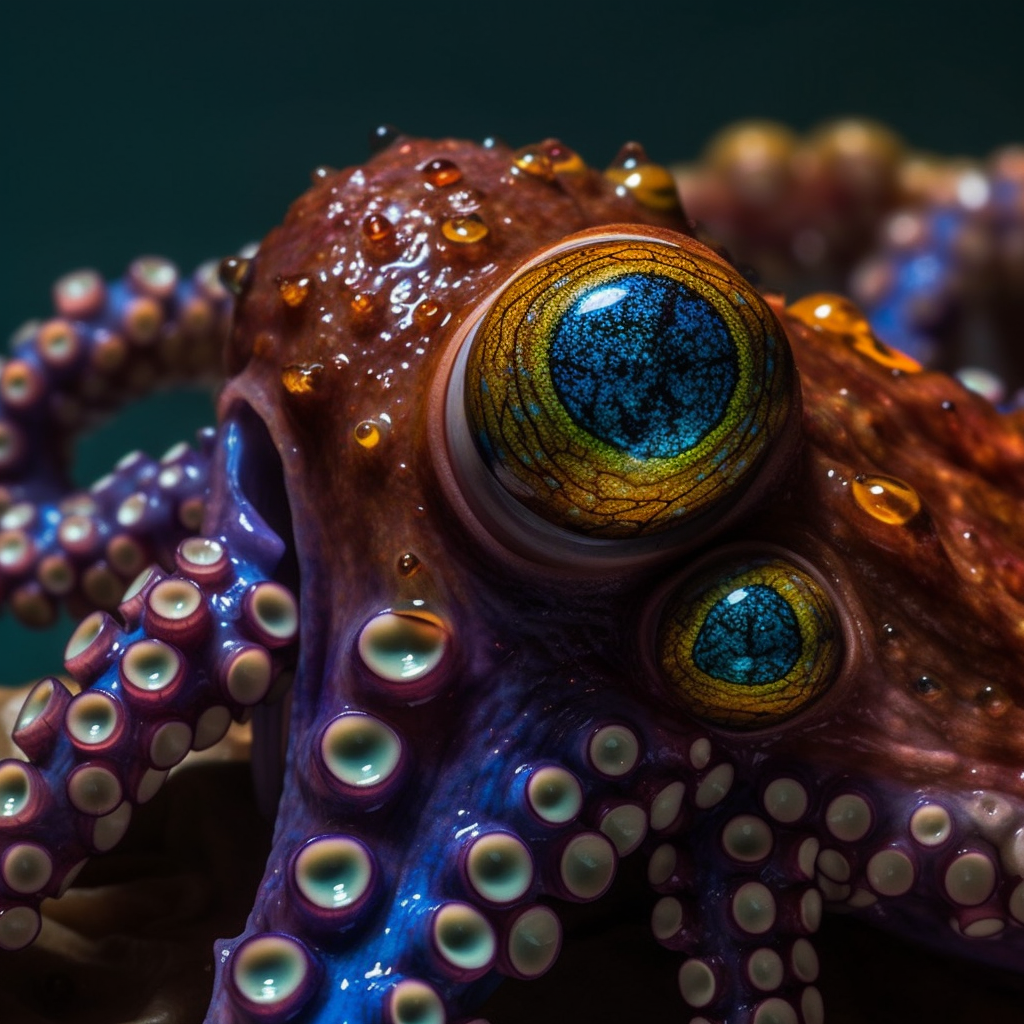
Dolphins are widely regarded as one of the most intelligent creatures in the animal kingdom. Their cognitive abilities and complex social structure have fascinated researchers and animal enthusiasts alike. In this section, we will explore the cognitive abilities of dolphins as well as their social structure and communication skills.
A. Cognitive Abilities of Dolphins
Dolphins possess remarkable cognitive abilities that set them apart from many other marine animals. Their brain capacity and problem-solving abilities have been the subject of numerous studies. Researchers have found that dolphins have a highly developed neocortex, which is responsible for advanced cognitive functions such as perception, problem-solving, and decision-making.
One of the most intriguing aspects of dolphin intelligence is their ability to learn and adapt. Dolphins have been observed using tools, such as sponges, to protect their snouts while foraging for food on the ocean floor. This behavior demonstrates their problem-solving skills and adaptability in utilizing objects in their environment.
Furthermore, dolphins have shown impressive memory capabilities. They can remember specific individuals and even recognize themselves in mirrors, indicating a level of self-awareness. This ability to remember and recognize individuals plays a crucial role in their complex social interactions and communication.
B. Social Structure and Communication in Dolphins
Dolphins are highly social animals that live in complex social groups known as pods. These pods can consist of a few individuals or several hundred, depending on the species. Within these pods, dolphins exhibit a hierarchical social structure, with dominant individuals leading the group.
Communication is essential for dolphins to navigate their social interactions effectively. They use a variety of vocalizations, body movements, and even echolocation to communicate with each other. Echolocation, in particular, is a unique ability that allows dolphins to navigate and locate objects in their environment using sound waves.
Dolphins also display cooperative behaviors, such as hunting in groups and protecting each other from predators. These cooperative behaviors require effective communication and coordination among the members of the pod. Studies have shown that dolphins can communicate complex information, such as coordinating their movements during hunting or warning each other of potential dangers.
In conclusion, dolphins possess remarkable cognitive abilities and exhibit complex social structures and communication skills. Their intelligence ranks among the highest in the animal kingdom, making them fascinating creatures to study. Understanding the intelligence of dolphins not only provides insights into their own species but also sheds light on the broader topic of comparative animal intelligence and the diversity of cognitive abilities in the natural world.
The Intelligence of Octopuses
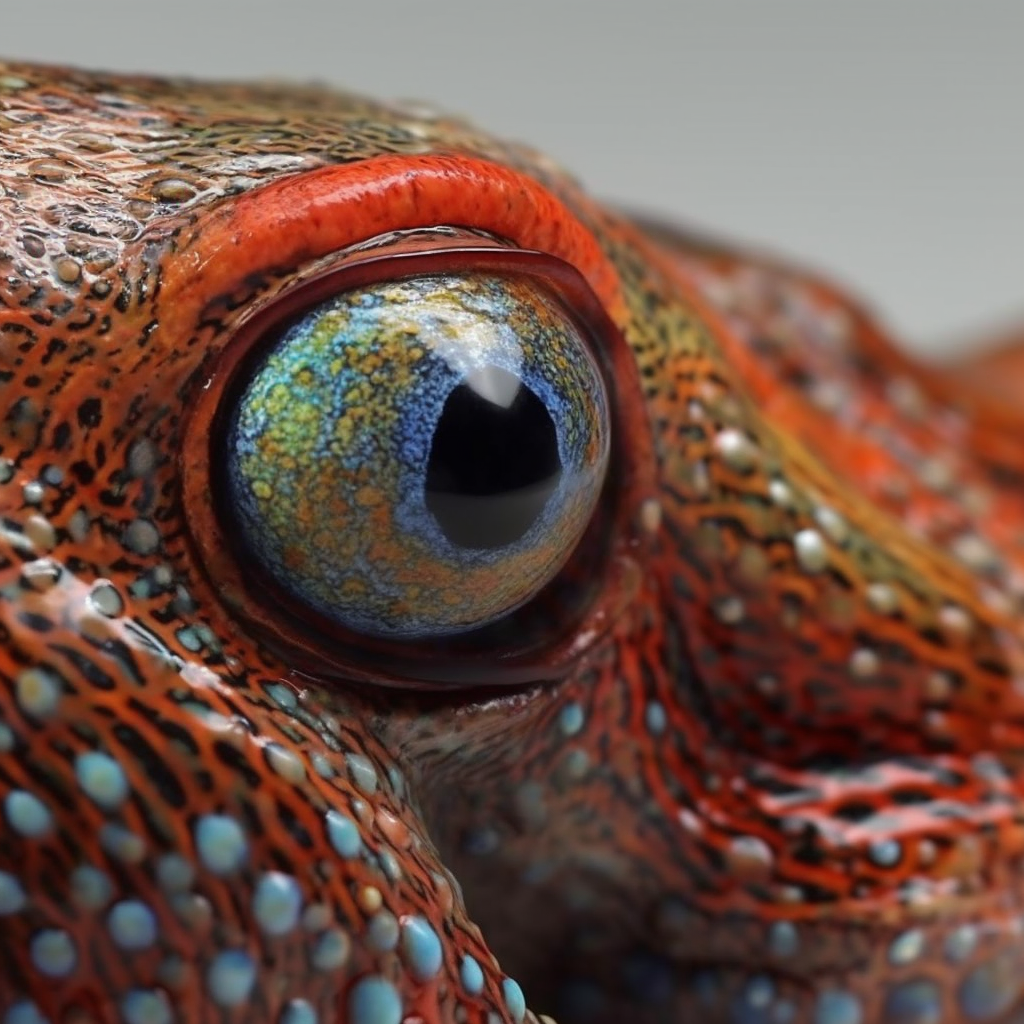
A. Problem-Solving and Learning in Octopuses
Octopuses are fascinating creatures with a remarkable level of intelligence. While dolphins are often hailed as one of the smartest animals in the ocean, octopuses give them a run for their money in terms of problem-solving and learning abilities.
One of the most impressive aspects of octopus intelligence is their problem-solving skills. These cephalopods have been observed using tools, such as rocks or coconut shells, to create shelters or protect themselves from predators. This ability to manipulate objects and use them in creative ways demonstrates their advanced cognitive abilities.
In addition to their tool use, octopuses are also known for their exceptional problem-solving skills. They can navigate complex mazes, open jars to access food, and even mimic the behavior of other animals. These abilities require a high level of cognitive flexibility and adaptability.
B. The Unique Intelligence of Solitary Octopuses
Unlike dolphins, which are highly social animals, octopuses are solitary creatures. This solitary lifestyle has shaped their intelligence in unique ways. While dolphins rely on complex social structures and communication skills, octopuses have developed a different set of cognitive abilities to survive in their solitary existence.
One of the most remarkable features of octopus intelligence is their ability to camouflage and blend seamlessly into their surroundings. They can change the color and texture of their skin to match their environment, making them virtually invisible to predators and prey. This level of camouflage requires not only visual perception but also a deep understanding of their environment.
Octopuses also have an impressive memory. They can remember complex routes and locations, allowing them to navigate their surroundings with ease. This memory is crucial for their survival, as they need to remember the location of food sources and potential threats.
In conclusion, while dolphins are known for their social intelligence and communication skills, octopuses exhibit a different kind of intelligence. Their problem-solving abilities, tool use, adaptability, and memory make them formidable creatures in their own right. The intelligence of octopuses is a testament to the diverse range of cognitive abilities found in marine animals.
Comparing Dolphin and Octopus Intelligence
A. Similarities in Cognitive Abilities
When it comes to intelligence in the animal kingdom, dolphins and octopuses are often considered to be at the top of the list. While they belong to different branches of the animal tree of life – dolphins being mammals and octopuses being cephalopods – they both exhibit remarkable cognitive abilities. Let’s explore some of the similarities in their cognitive capabilities.
- Problem-solving Skills:
- Both dolphins and octopuses are known for their problem-solving abilities. They can navigate complex mazes, manipulate objects, and find creative solutions to challenges they encounter in their environments.
-
Dolphins have been observed using tools, such as sponges, to protect their snouts while foraging for food on the ocean floor. Similarly, octopuses have been observed using coconut shells as protective shelters.
-
Learning Capabilities:
- Both dolphins and octopuses are highly adaptable learners. They can acquire new skills and behaviors through observation and experience.
-
Dolphins are known for their ability to learn complex tasks, such as understanding and responding to human commands during training sessions. Octopuses, on the other hand, have been observed learning through trial and error, adapting their behaviors based on the outcomes they experience.
-
Communication Skills:
- Dolphins and octopuses have sophisticated communication systems.
- Dolphins use a combination of clicks, whistles, and body movements to communicate with each other. They can even use signature whistles to identify themselves and maintain social bonds within their pod.
- Octopuses, although lacking vocalization abilities, communicate through a range of visual displays, color changes, and body postures. They can also use their highly developed camouflage skills to convey messages to other octopuses.
B. Differences in Social and Environmental Interactions
While dolphins and octopuses share certain cognitive abilities, they differ significantly in their social and environmental interactions. These differences stem from their distinct evolutionary backgrounds and adaptations to their respective habitats.
- Social Structure:
- Dolphins are highly social animals that live in complex social groups called pods. They engage in cooperative behaviors, such as hunting and protecting each other from predators.
-
Octopuses, on the other hand, are predominantly solitary creatures. They typically prefer a solitary lifestyle and only come together for mating purposes.
-
Environmental Adaptations:
- Dolphins are marine mammals that have evolved to thrive in the open ocean. They have streamlined bodies, excellent swimming abilities, and rely on echolocation to navigate and locate prey.
-
Octopuses, being cephalopods, are known for their remarkable adaptability to various marine environments. They have the ability to change their skin color and texture to camouflage themselves from predators or blend in with their surroundings.
-
Memory and Learning:
- Dolphins have been shown to possess long-term memory and can remember specific individuals and locations over extended periods. This ability aids them in their complex social interactions and navigation.
- Octopuses, while also capable of learning and memory, have a more short-term memory span. They rely heavily on their problem-solving skills and quick adaptation to their surroundings.
In conclusion, both dolphins and octopuses exhibit remarkable cognitive abilities, but they differ in their social structures, environmental adaptations, and memory capabilities. While dolphins rely on their highly developed social interactions and long-term memory, octopuses excel in their problem-solving skills, adaptability, and camouflage abilities. Understanding the intelligence of these fascinating creatures sheds light on the diverse ways in which animals have evolved to navigate and thrive in their respective environments.
Are Octopuses Smarter than Dolphins?
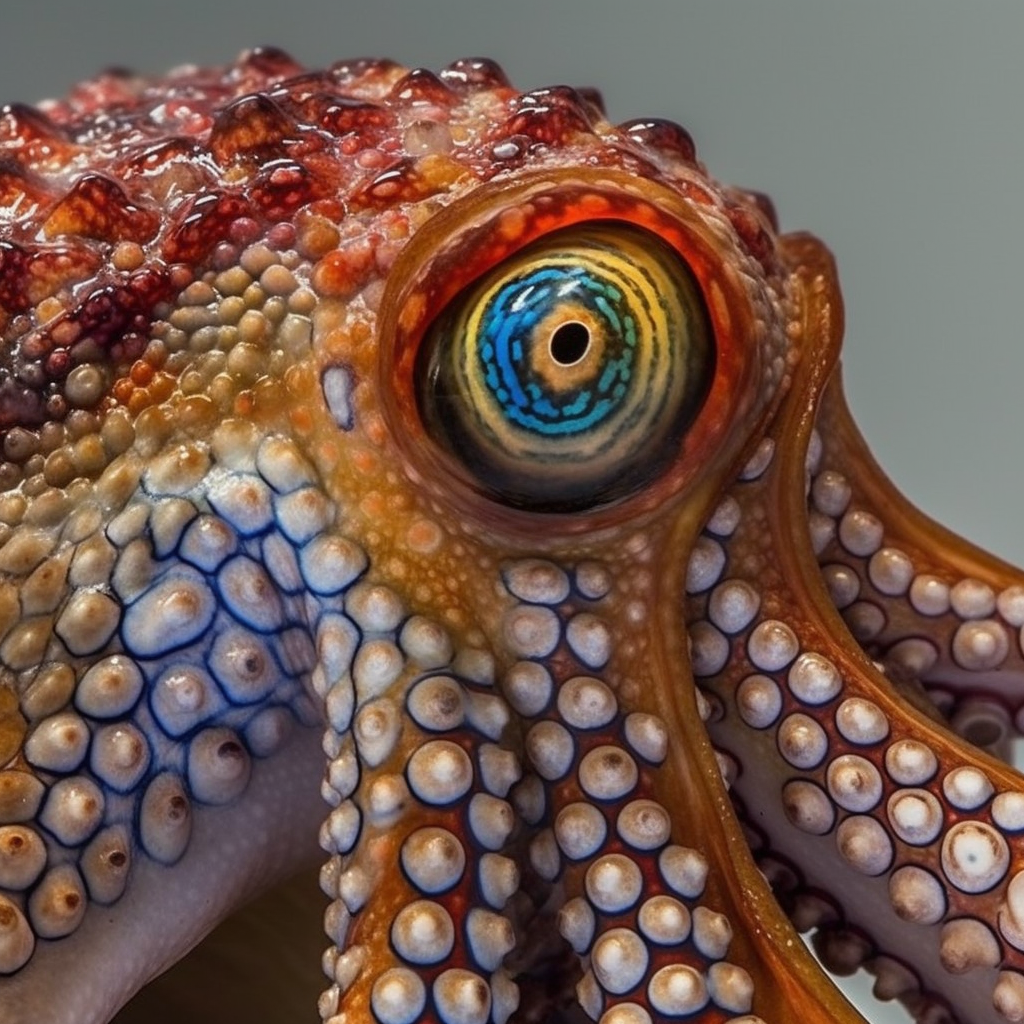
A. Arguments for Octopus Superiority
When it comes to intelligence in the animal kingdom, the octopus often stands out as a remarkable creature. While dolphins are widely recognized for their cognitive abilities, octopuses possess unique qualities that set them apart. Let’s explore some of the arguments for octopus superiority.
1. Problem-Solving Abilities
Octopuses are known for their exceptional problem-solving skills. These cephalopods have a remarkable ability to navigate complex mazes, open jars, and even unscrew lids to access food. Their flexible bodies and dexterous tentacles allow them to manipulate objects with precision and ingenuity. Octopuses can adapt their strategies and learn from previous experiences, showcasing their cognitive prowess.
2. Camouflage and Adaptability
Another area where octopuses shine is in their camouflage and adaptability. These intelligent creatures have the ability to change their skin color and texture to blend seamlessly with their surroundings. This remarkable skill not only helps them hide from predators but also aids in hunting prey. Octopuses can mimic various objects and even imitate the patterns of other animals, making them masters of disguise.
3. Tool Use
While dolphins are known for their complex social structures and communication skills, octopuses exhibit an impressive level of tool use. These clever creatures have been observed using coconut shells as portable shelters, carrying them around for protection. They have also been observed using rocks and other objects to create barriers or to excavate dens. This ability to manipulate and utilize tools demonstrates their advanced cognitive abilities.
B. Counterarguments: The Case for Dolphins
While octopuses possess remarkable intelligence, dolphins also have a strong case for being considered highly intelligent marine animals. Let’s explore some of the counterarguments to octopus superiority.
1. Cognitive Abilities
Dolphins have long been recognized for their cognitive abilities. They exhibit complex problem-solving skills, memory capabilities, and the ability to learn and understand abstract concepts. Dolphins have been trained to perform a wide range of tasks, demonstrating their capacity for learning and comprehension.
2. Social Structure and Communication
Dolphins are highly social animals with intricate social structures. They live in pods and engage in complex social interactions, displaying cooperation and coordination. Their communication skills are also highly developed, with the ability to produce a wide range of vocalizations and use echolocation to navigate and locate prey. These attributes highlight their advanced cognitive abilities.
3. Memory and Learning
Dolphins have been shown to possess impressive memory capabilities. They can remember individuals, locations, and specific tasks over long periods of time. This ability to retain information and apply it in various contexts showcases their advanced cognitive abilities and adaptability.
In conclusion, both octopuses and dolphins exhibit remarkable intelligence in their own unique ways. While octopuses excel in problem-solving, adaptability, and tool use, dolphins showcase their cognitive abilities through complex social structures, communication skills, and memory capabilities. The comparison between these two intelligent marine creatures highlights the diversity of cognitive abilities in the animal kingdom and reminds us of the fascinating world of animal intelligence.
Exploring Other Marine Intelligence: Squids
Squids, fascinating creatures of the deep sea, possess a remarkable level of intelligence that often goes unnoticed. In this section, we will delve into the cognitive abilities of squids and compare their intelligence with that of dolphins and octopuses.
A. Cognitive Abilities of Squids
Squids, like their cephalopod relatives, possess a highly developed nervous system that enables them to exhibit complex behaviors and problem-solving skills. They have the largest brain-to-body ratio among all invertebrates, indicating their potential for advanced cognitive abilities.
-
Problem-solving and learning: Squids have demonstrated impressive problem-solving skills in various laboratory experiments. They can quickly adapt to new environments and learn from their experiences. For example, researchers have observed squids successfully navigating mazes and solving puzzles to obtain rewards.
-
Communication and social behavior: While squids may not possess the same level of social complexity as dolphins, they do exhibit certain forms of communication and social behavior. They can communicate through visual displays, body patterns, and color changes. Squids also engage in courtship rituals and display territorial behavior.
-
Camouflage and defense mechanisms: Squids are masters of camouflage, capable of changing their skin color and texture to blend seamlessly with their surroundings. This ability not only helps them avoid predators but also aids in hunting prey. Squids can also release ink clouds as a defensive mechanism, confusing and distracting potential threats.
B. Comparing Squid Intelligence with Dolphins and Octopuses
When comparing the intelligence of squids with that of dolphins and octopuses, it is important to consider various factors such as problem-solving abilities, communication skills, and social behavior.
-
Problem-solving abilities: Octopuses are renowned for their exceptional problem-solving skills. They can manipulate objects, open jars, and even use tools to accomplish tasks. Dolphins, on the other hand, have also displayed remarkable problem-solving abilities, such as using sponges as protective tools while foraging. Squids, although not as extensively studied, have shown promising problem-solving capabilities.
-
Communication skills: Dolphins are known for their sophisticated communication skills, including the use of vocalizations, body language, and echolocation. Octopuses, while not possessing the same level of vocal communication, exhibit complex visual displays and body patterns. Squids communicate primarily through visual displays and color changes, which may not be as intricate as dolphins or octopuses but still serve their purpose.
-
Social behavior: Dolphins are highly social animals, living in complex social structures and engaging in cooperative behaviors. Octopuses, on the other hand, are solitary creatures, with little social interaction beyond mating and aggression. Squids fall somewhere in between, displaying both solitary and social behaviors depending on the species.
In conclusion, while squids may not match the intelligence levels of dolphins and octopuses in certain aspects, they still possess remarkable cognitive abilities. Each of these marine creatures has evolved unique adaptations and behaviors that contribute to their survival in their respective environments. The study of marine animal intelligence continues to shed light on the fascinating world of underwater cognition. Conclusion
In conclusion, while both octopuses and dolphins are incredibly intelligent creatures, it is difficult to definitively say which one is smarter. Octopuses exhibit remarkable problem-solving skills, possess exceptional camouflage abilities, and have a complex nervous system. On the other hand, dolphins are known for their advanced communication skills, social behavior, and ability to use tools. Both species have unique cognitive abilities that have been studied extensively, but comparing their intelligence is like comparing apples to oranges. Each animal has evolved to thrive in its own environment and has developed specific skills that are essential for its survival. Ultimately, the intelligence of these magnificent creatures is a testament to the wonders of the natural world and the incredible diversity of life on our planet.
Frequently Asked Questions
1. Are octopus smarter than dolphins?
While both octopuses and dolphins exhibit high levels of intelligence, it’s difficult to definitively say one is smarter than the other. Intelligence varies greatly among species and is often measured differently depending on the animal. Dolphins have a larger brain capacity and complex social structures, while octopuses exhibit advanced problem-solving abilities and adaptability.
2. Are dolphins smarter than octopuses?
Dolphins are known for their impressive cognitive abilities, including memory, echolocation, and communication skills. They also have a larger brain capacity compared to octopuses. However, intelligence is not solely determined by brain size. Octopuses also display remarkable intelligence, such as tool use, escape artistry, and camouflage skills. Therefore, it’s not accurate to say one is definitively smarter than the other.
3. Are octopuses more intelligent than dolphins?
Octopuses are highly intelligent, exhibiting advanced problem-solving abilities, learning capabilities, and adaptability. They are also known for their tool use and escape artistry. However, dolphins also display high intelligence, with advanced communication skills, memory, and cognitive abilities. Therefore, it’s not accurate to say octopuses are more intelligent than dolphins without considering different aspects of intelligence.
4. Are squids smarter than dolphins?
While squids, like other cephalopods, exhibit signs of intelligence, there is less research on squid intelligence compared to dolphins or octopuses. Dolphins are known for their high cognitive abilities, including advanced communication skills, echolocation, and complex social structures. Therefore, based on current knowledge, it’s not accurate to say squids are smarter than dolphins.
5. Are octopuses smarter than dolphins?
Octopuses display a high level of intelligence, including advanced problem-solving abilities, learning capabilities, and adaptability. However, dolphins also exhibit high cognitive abilities, including advanced communication skills, memory, and complex social structures. Therefore, it’s not accurate to say octopuses are smarter than dolphins without considering different aspects of intelligence.
6. How does octopus intelligence compare to dolphin cognition?
Octopus intelligence and dolphin cognition are both highly developed, but they manifest in different ways. Octopuses are known for their problem-solving abilities, tool use, and adaptability, including their escape artistry and camouflage skills. Dolphins, on the other hand, have advanced communication skills, memory, and echolocation abilities. They also exhibit complex social structures.
7. How does octopus problem-solving abilities compare to dolphin brain capacity?
While dolphins have a larger brain capacity, which contributes to their advanced cognitive abilities, octopuses exhibit remarkable problem-solving abilities. They are known to escape from enclosures and use tools, indicating a high level of intelligence. Therefore, while these aspects of intelligence are different, they both contribute to the overall intelligence of these animals.
8. What is the intelligence ranking of dolphins and octopuses in the animal kingdom?
Both dolphins and octopuses rank highly in terms of intelligence among animals. Dolphins are often considered one of the most intelligent animals due to their advanced cognitive abilities, complex social structures, and communication skills. Octopuses also rank highly due to their problem-solving abilities, learning capabilities, and adaptability.
9. How do the cognitive abilities of dolphins compare to the learning capabilities of octopuses?
Dolphins exhibit advanced cognitive abilities, including communication skills, memory, and echolocation abilities. They also have complex social structures. Octopuses, on the other hand, display remarkable learning capabilities, problem-solving abilities, and adaptability. Both animals are highly intelligent, but their intelligence manifests in different ways.
10. How do studies on dolphin intelligence compare to studies on octopus intelligence?
Studies on dolphin intelligence often focus on their cognitive abilities, communication skills, memory, and social structures. Dolphins have been shown to recognize themselves in mirrors, understand complex commands, and use tools. Studies on octopus intelligence often focus on their problem-solving abilities, learning capabilities, and adaptability. Octopuses have been observed using tools, escaping from enclosures, and displaying complex behaviors. Both animals are subjects of ongoing research in the field of comparative animal intelligence.

